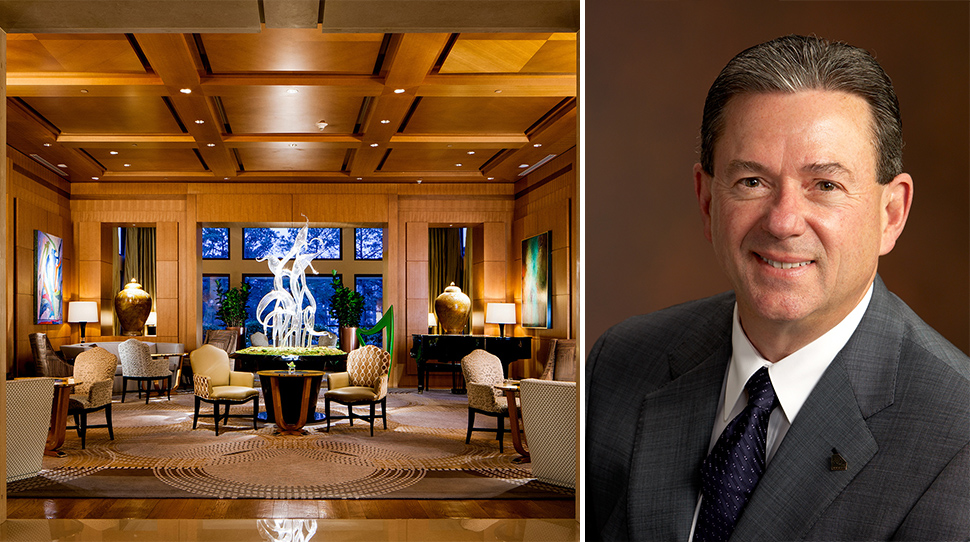

What does the general manager of a luxury property that earned Forbes Travel Guide Five-Star marks for its hotel, restaurant and spa do after he’s celebrated the rare accomplishment? If you’re The Umstead Hotel and Spa’s Jim Beley, you get right back to work, that’s what.
“We’ve completed about one third of the rooms,” said Beley, on the massive makeover his Cary, North Carolina, property is undergoing. “We have 150 rooms and we’ve completed 46 rooms, but there’s still a ways to go. We’ll probably be complete sometime in around early June, and then we’re going to renovate Herons restaurant, our bar and lounge, and our promenade area. It’s been almost seven years since we’ve done it, so it’s time.”
But Beley knows that renovations alone won’t keep travelers coming back. As he explains below, the secret to Star Awards success lies in consistency, a confident staff and a few extra cucumbers in guests’ water.
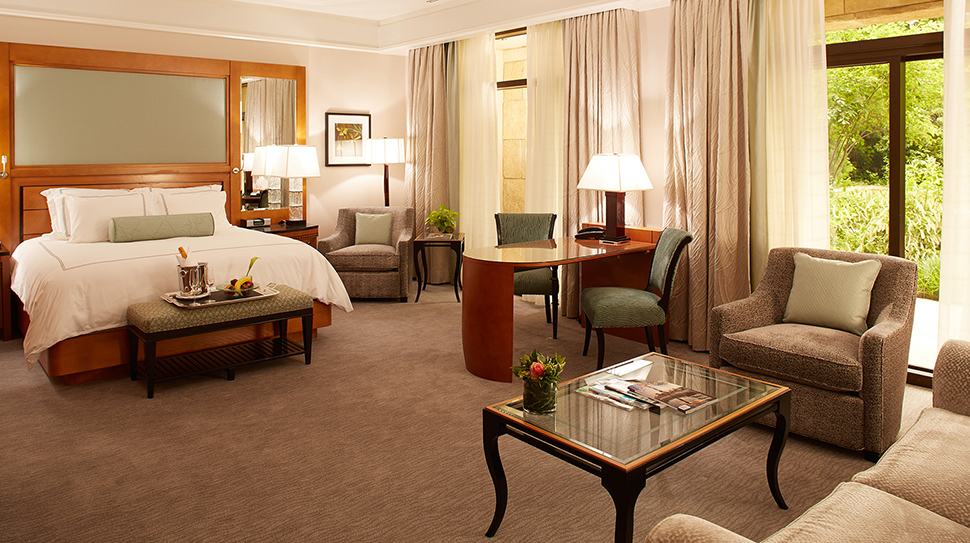
Your hotel is now a member of an exclusive club with a Five-Star hotel, restaurant and spa. When you hear that, the triple Five-Star, what kind of feelings resonate inside you?
When I first heard the news, I was in my office and I was pretty much stunned and taken aback. I had some kind of inkling that we had scored very, very high in the inspection last year.
That being said, I don’t want to say that I was pessimistic, I just didn’t think it was going to happen this year. So, when I got the call and was told that we had, in fact, achieved the [triple] Five Star, I was frozen stunned. If I’m correct, I think there are only 13 properties in the world rated by Forbes Travel Guide that have the triple Five. And in the United States, I believe we’re one of seven.
There’s a challenge of reaching Five-Star excellence. But there’s a bigger challenge of staying excellent. Talk about the things that it takes to consistently be great.
Well, it has to be a daily effort. We all know that our properties are open 24/7. Obviously, the restaurant has opening and closing hours. As does the spa. But when I say a daily effort, it’s not where you can just inform people or instruct people on what they need to do; they need to receive daily motivation to do their work at a high level of quality. What we do is — along with all of the quality standards that we have at The Umstead and the guidance we receive from Forbes Travel Guide — we also stay very, very close to our work values, our philosophies. There are core work values that we teach from day one to our employees.
But it’s not just telling them about it once. It’s continuing to instruct them on our expectations for everyone at the property — that they will be responsible for their behavior and quality performance and that they will respect our guests but also respect one another in the workplace. We have to cooperate and support one another for the betterment of the service to our guests. We have to be positive about our service work. We are service professionals. Sometimes, depending on any given day you go, somebody’s mood can alter. We have to be on top of our service approach and our quality attitude all the time. Those are the things that we teach.
Obviously, at this level, there are a lot of tactical points of training in regards to how to make a bed, how to properly fold a towel and how to set a table. We work on those type of things to get exacting detail. But I believe in today’s world, what sets us apart is the fact that we have an emotional connection with our guests. What we hear on a regular basis through surveys, through written letters and emails that we receive, is that people are very much thrilled to experience The Umstead style of service because it’s friendly and it’s warm yet professional.
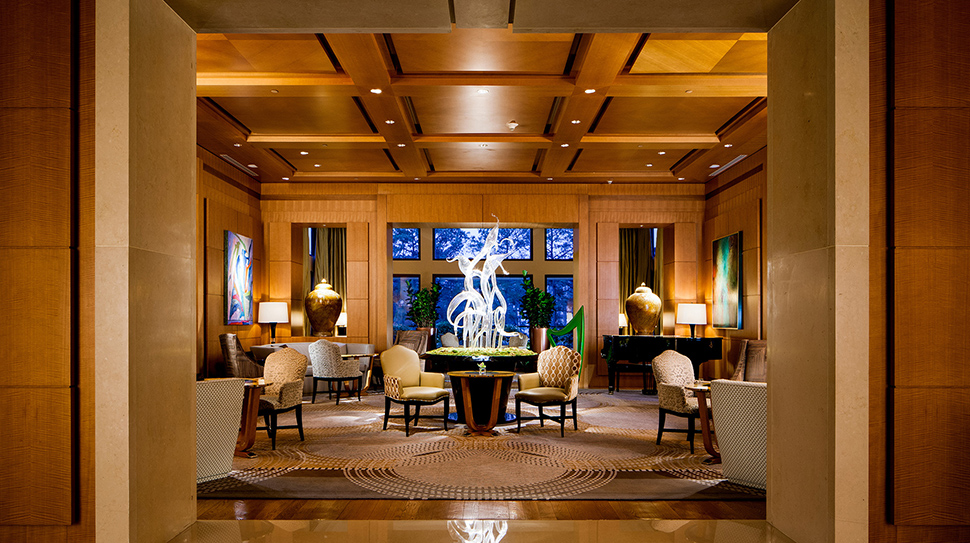
In that last response, you mentioned employees and the workplace. When it comes to hiring, how do you pick a winning staff?
It’s a challenge, especially in a great economy that we have right now. So that’s a double-edged sword. We are very, very grateful for the strong economy that we have right now, because luxury products do well in a strong economy. But also, in a strong economy, unemployment goes down and it makes our job of selecting new associates that much more challenging.
Also, where we are, a suburb of Raleigh, North Carolina, many of our staff members have never experienced a Five-Star product. So, we have to bring them up and groom them appropriately through our training initiatives on what our guests are expecting of us, what they’re expecting of this product, and how their particular job role fits into it.
We are very sensitive to the way people present themselves initially in the interviewing process. I would say that most of our positions, especially those that are guest-directed positions, [the candidate will] have at least three interviews: one with our human resources department; then usually one with the department head where the individual will work; and the last one, if it’s a [serious] consideration for hire, then a divisional manager — the rooms director, the food and beverage director — will do a quick interview with the individual.
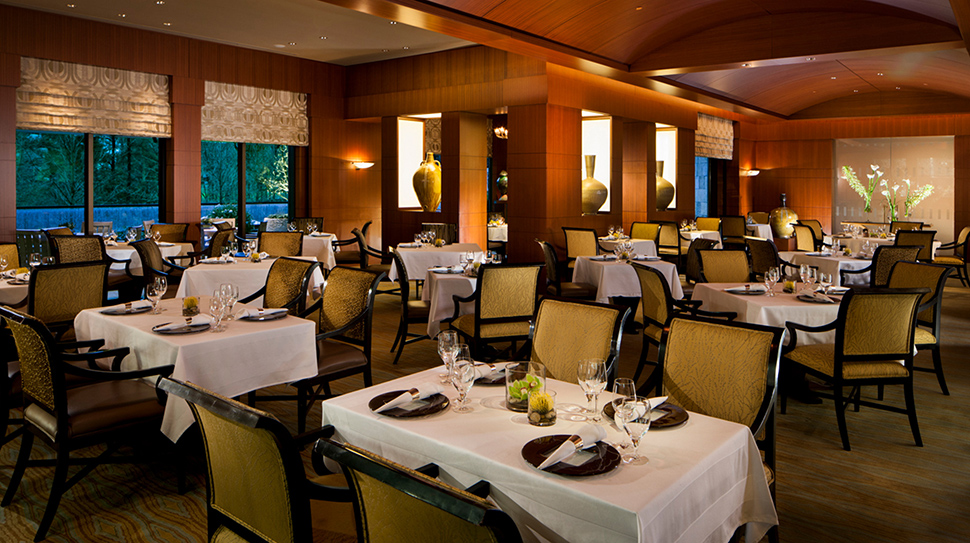
What makes a dining experience at Herons so special?
One thing that’s important is that our executive chef is very closely involved in what goes on in the Herons dining experience. Steven Greene has been here for 10 and a half years. He was originally the chef de cuisine and then we made him executive chef a number of years ago. He’s very much involved in what we do.
We have a very whimsical approach to the things that occur during the dinner. It’s just not a matter of ordering three or four courses and we bring those courses out appropriately. We are continuing to tease the guest with little intermezzos of food and other niceties that people are not necessarily expecting. From the time you sit down, we offer sparkling or still water. A person will say “still water.” Then, as a finish, we come out with a very beautiful selection of not only lemon or lime, but cucumbers, for your water.
Then, we start to tease the guests with little small tastings that go throughout the meal. So, it’s not just having, as I said, the three-course meal; it’s multiple courses thereafter. We oftentimes figure it’s probably about nine to 10 plates per guest that we’re serving them.
Everything that we’re trying to do, it goes back to personalized service. Many of our service staff on the floor have been with us since 2010, 2011 and are quite accomplished in their service. They are very knowledgeable about the food that we’re serving. We change the menus by season. Each person who is on the floor is made to take a test, and they have to successfully pass the test on the new menu. [They must] be very clear and articulate in explaining to the guests what the chef is preparing for them in that particular choice.
Then, it goes to the wines. We have two sommeliers. Oftentimes on busy nights, both of them are on the floor serving guests, advising guests toward their selection of wine. I think that something that has changed dramatically in the last few years is most people are ordering wine tastings or wine pairings as opposed to bottles of wine.
I’ll ask [the sommeliers] how their night was, and they’ll say, “Well, we had 70 covers and we only opened up two bottles of wine.” Everyone is consuming wine, but they are consuming wine pairings. That’s just an evolution of what is happening in the fine-dining scene. That wasn’t the case probably five or six years ago.
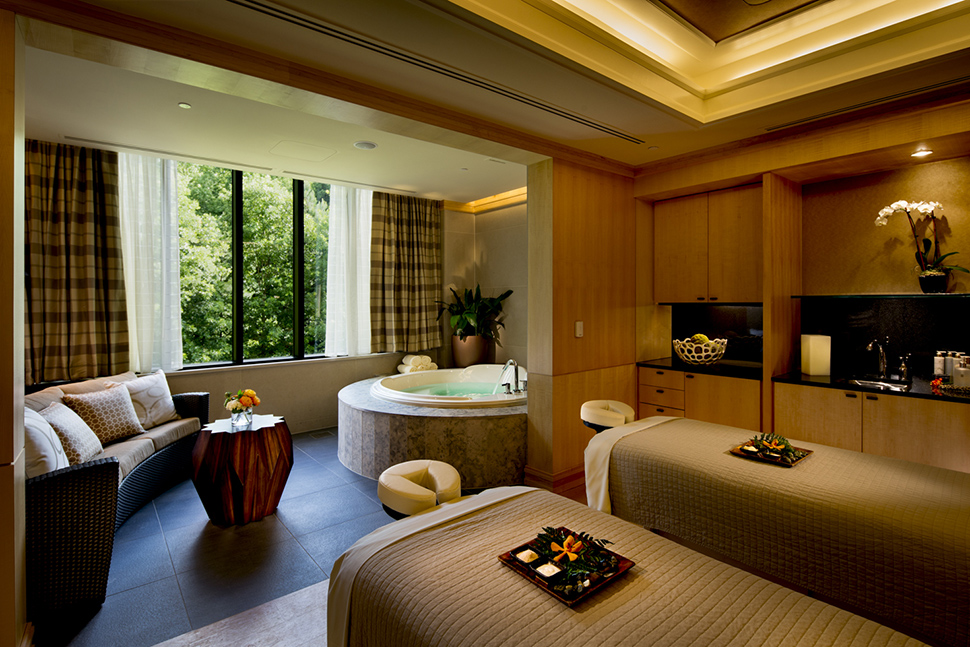
What are some components of the spa that make it one of the finest in the South?
This is a very busy spa. We are serving both local patrons and our in-house guests. Weekends are predominantly all in-house guests that are utilizing our spa. I’ll give you an example, a metric, that since the beginning of 2020, we’ve been averaging 88 services a day. Most spas might do 88 services on a Friday, Saturday or a Sunday, but they usually then slow down during the week. Our spa is equally as busy on Tuesday and Wednesday as they are on the weekends, which is very, very good. Why? We are able to retain good-quality therapists, aestheticians and nail techs because they know when they come to work, they’re going to be busy.
When that person who has experienced the hotel for a few days checks out, what are a few emotions you want them to leave with?
[I want them to say,] “I can’t wait to return.” Part of what we try to teach our staff is that the guest that they are serving today, we want to thrill them so they have a genuine interest to return at some point in time, which is really the theory of hospitality. In the luxury end, if our guests only stay with us once and decide that they wouldn’t come back or didn’t have the occasion to come back, then we wouldn’t have the strength of business that we currently have.
We really look at that as a standpoint of measurement. Currently, we are approaching about 60 percent business travelers. Many of them are in here several times a month. I think that’s a testament towards the experience that we’ve provided them, the accommodations that we provide them.
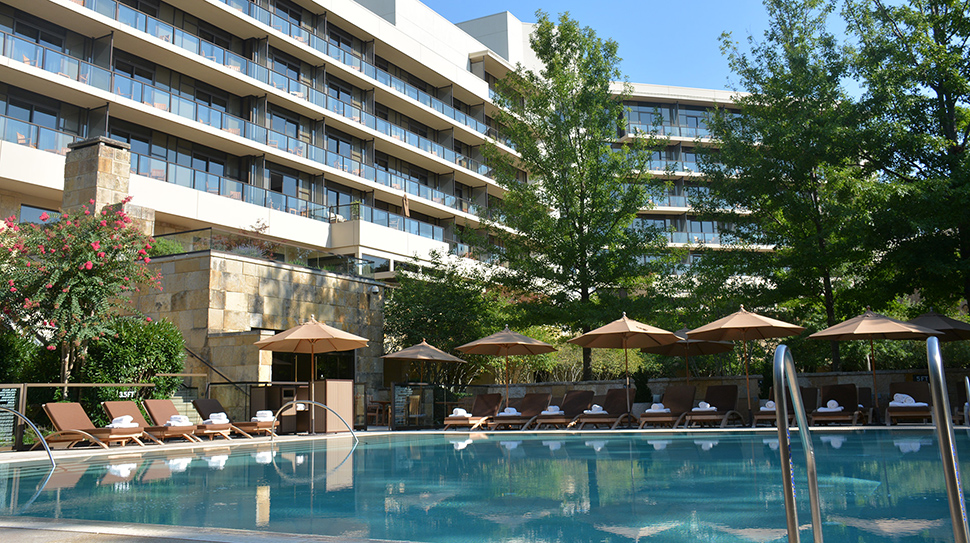
I told you earlier in the call that we are renovating our rooms. When I say that to people, they say, “Oh, I just stayed there last month. What are you renovating? It was beautiful.” We know that it’s time to renovate. We know what we need to do updates and further refine our accommodations. But it’s interesting when their reflection on it is, “What could you renovate?”
We understand that we’re not inexpensive for dinner or for a spa appointment or for an overnight accommodation, but we believe that we provide good value. And in that value, we want to see how many people return to us. Even if that’s a couple here for their 10th anniversary and they don’t return until their 15th anniversary, that’s fine with me as long as they have that sincere desire to return.
